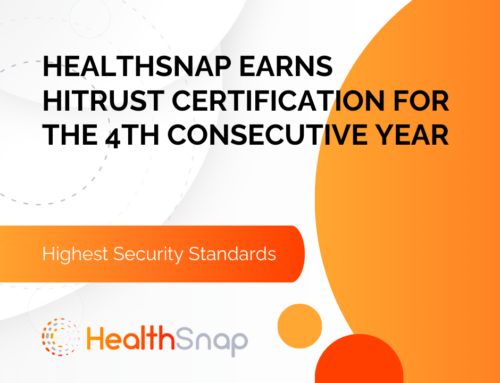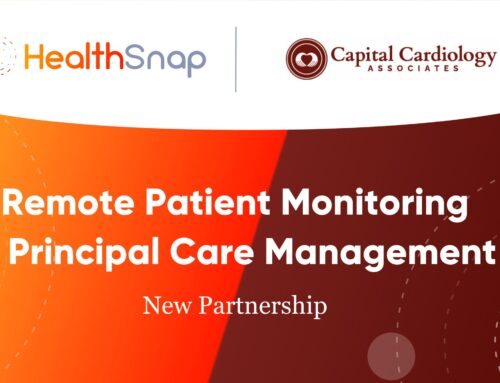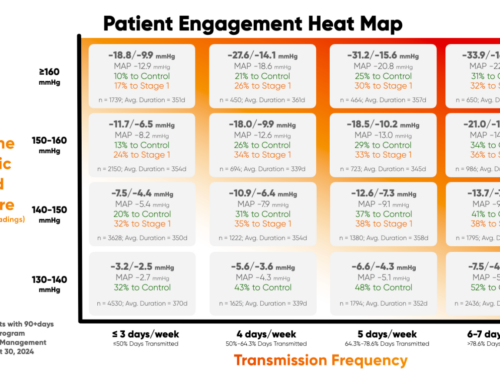As healthcare evolves, the distinction between Chronic Care Management (CCM) and Principal Care Management (PCM) becomes important for providers aiming to deliver comprehensive care and optimize reimbursements. Both CCM and PCM cater to patients with chronic conditions but serve different purposes and have distinct billing codes, requirements, and benefits.
What is Chronic Care Management?
Definition and Purpose: Chronic Care Management (CCM) is designed for patients with multiple chronic conditions. Its primary goal is to provide comprehensive care coordination to improve patient outcomes and reduce hospitalizations.
Eligibility Criteria: To qualify for CCM, patients must have two or more chronic conditions expected to last at least 12 months or until the patient’s death. These conditions must place the patient at significant risk of acute exacerbation/decompensation, functional decline, or death.
CPT Codes and Reimbursement
CCM services are billed using specific CPT codes:
-
99490: At least 20 minutes of clinical staff time per month.
-
99439: Each additional 20 minutes of clinical staff time.
-
99491: At least 30 minutes of care by a physician or other qualified healthcare professional per month.
-
99437: Each additional 30 minutes of care by a physician or other qualified healthcare professional.
Medicare reimburses approximately $42 for 99490 and $128 for 99491, reflecting the value placed on comprehensive care management.
What is Principal Care Management?
Definition and Purpose: Principal Care Management (PCM) focuses on patients with a single high-risk chronic condition. PCM aims to manage and coordinate care for this specific condition, which requires frequent adjustments and monitoring.
Eligibility Criteria: PCM is suitable for patients with one complex chronic condition expected to last at least three months. This condition must pose a significant risk of hospitalization, acute exacerbation/decompensation, functional decline, or death.
CPT Codes and Reimbursement
Principal Care Management services are billed using different CPT codes:
-
99424: First 30 minutes of care management by a physician or qualified healthcare professional.
-
99425: Each additional 30 minutes of care management.
-
99426: First 30 minutes of clinical staff time, directed by a physician or qualified healthcare professional.
-
99427: Each additional 30 minutes of clinical staff time.
Reimbursements for Principal Care Management codes are approximately $83 for 99424 and $63 for 99426, emphasizing the targeted nature of PCM services.

Key Differences Between CCM and PCM
Scope of Care
Chronic Care Management
Holistic Approach: Chronic Care Management is designed for patients with multiple chronic conditions. This program adopts a holistic approach, focusing on the overall health and well-being of the patient rather than just individual conditions. The goal is to manage and coordinate care across all aspects of the patient’s health, which involves addressing multiple health issues concurrently and considering the patient’s overall lifestyle, mental health, and social determinants of health.
Comprehensive Care Coordination: CCM involves care coordination amongst various healthcare providers, specialists, and caregivers. Care coordination includes regular communication between the regular and other qualified healthcare providers, sharing of patient health records, and creating a unified care plan that addresses all of the patient’s chronic conditions.
Key Services Provided
-
Care Planning and Assessment: Regular assessments and updates to the care plan to reflect the patient’s evolving health status and needs.
-
Medication Management: Ensuring that all medications prescribed for different conditions do not interact negatively and are managed effectively.
-
Patient Education and Engagement: Providing information and resources to help patients understand their conditions, adhere to treatment plans, and make informed health decisions.
-
Behavioral Health Integration: Addressing behavioral health concerns that may accompany chronic physical conditions.
-
Social Support Services: Ensuring patients have contact with social services and support systems that can help address non-medical factors impacting health, such as housing, transportation, and financial assistance.
Patient Eligibility: To be eligible for CCM services, a patient must have at least two chronic conditions expected to last at least 12 months or until the patient’s death. These conditions must place the patient at significant risk of death, acute exacerbation or decompensation, or functional decline. Common chronic conditions that might make a patient eligible for CCM include diabetes, hypertension, heart disease, and chronic obstructive pulmonary disease (COPD).

Principal Care Management
Specialized and Intensive Focus: Principal Care Management is designed to provide specialized care management for patients with a single high-risk chronic condition. The scope of PCM is narrower than that of CCM, focusing specifically on the management and treatment of one complex chronic condition that requires ongoing, specialized attention.
Condition-Specific Care Coordination: PCM involves the development and implementation of a disease-specific care plan. This plan includes monitoring and adjustments to the treatment regimen, coordination among specialists who provide care for the specific condition, and regular updates to the care plan based on the patient’s response to treatment. The PCM approach ensures that all aspects of managing the targeted chronic condition are addressed comprehensively.
Key Services Provided
-
Frequent Monitoring and Adjustments: Close monitoring of the patient’s condition with regular adjustments to the care plan and medications as needed.
-
Specialist Involvement: Coordination with specialists who have expertise in managing the specific chronic condition and transitional care management.
-
Patient and Caregiver Communication: Regular communication with the patient and their caregivers to ensure adherence to the care plan and address any concerns or complications that arise.
-
Education on Disease Management: Providing in-depth education on managing the specific chronic condition, including lifestyle changes, symptom management, and when to seek medical help.
-
Emergency Planning: Developing a plan for managing potential acute episodes or exacerbations of the chronic condition, including when to visit the emergency room or contact a healthcare provider.
Patient Eligibility: PCM is suitable for patients with a single complex chronic condition that is expected to last at least three months and also places the patient at significant risk of hospitalization, acute decompensation or exacerbation, functional decline, or death. Examples of high-risk chronic conditions include certain types of cancer, heart failure that is advanced, severe asthma, and uncontrolled diabetes.

Care Coordination
Chronic Care Management
Comprehensive Coordination Among Multiple Providers and Specialties: Chronic Care Management emphasizes a comprehensive approach to coordinating care for patients with multiple chronic conditions. This coordination is crucial to managing the complexity of these patients’ healthcare needs effectively. Here’s how it works:
Central Role of Primary Care Providers (PCPs): The primary care provider typically serves as the central coordinator for the patient’s healthcare. The PCP is responsible for developing and maintaining a comprehensive care plan that addresses all of the patient’s chronic conditions. This plan includes treatment goals, medication lists, follow-up schedules, and referrals to specialists as needed.
Integrated Care Teams: CCM involves the formation of integrated care teams that include various healthcare professionals, such as:
-
Primary Care Physicians: Oversee the overall health management of the patient and coordinate care across different providers.
-
Specialists: Provide expertise and treatment for specific chronic conditions (e.g., cardiologists for heart disease, endocrinologists for diabetes).
-
Nurses and Nurse Practitioners: Offer routine follow-up care, patient education, and support.
-
Pharmacists: Manage medication therapy to avoid adverse drug interactions and ensure adherence.
-
Behavioral Health Professionals: Address behavioral health issues that may impact chronic disease management.
-
Social Workers: Assist with non-medical needs such as housing, transportation, and financial resources.
Regular Communication and Collaboration: Effective CCM requires regular communication and collaboration among all members of the care team. This includes:
-
Routine Meetings: Scheduled team meetings to discuss the patient’s progress, update care plans, and address any emerging issues.
-
Electronic Health Records (EHRs): Integrated EHRs enable near real-time access to patient information, ensuring all providers have up-to-date data.
-
Care Coordinators: Dedicated care coordinators facilitate communication among providers, schedule appointments, and follow up on referrals and test results.
Patient and Family Engagement CCM also focuses on engaging patients and their families in the care process. This involves:
-
Education and Support: Providing education about the patient’s conditions, treatment options, and self-management strategies.
-
Shared Decision-Making: Involving patients and their families in treatment decisions to ensure that care plans align with their preferences and goals.
-
24/7 Access to Care: Offering round-the-clock access to care teams for urgent issues or questions, often through telehealth services.
Coordinating Care Across Settings: Patients with multiple chronic conditions often receive care in various settings, including hospitals, outpatient clinics, and home health services. CCM aims to ensure seamless transitions between these settings by:
-
Discharge Planning: Developing detailed discharge plans when patients leave the hospital, including follow-up appointments and home care instructions.
-
Home Health Integration: Coordinating with home health agencies to provide in-home services such as nursing care, physical therapy, and remote patient monitoring.
-
Community Resources: Linking patients with community resources such as support groups, wellness programs, and disease-specific organizations.
Principal Care Management
Focused Coordination on a Specific Condition: Principal Care Management (PCM) is designed to provide specialized and intensive care coordination for patients with a single high-risk chronic condition. This focused approach ensures that all aspects of managing the specific condition are addressed comprehensively. Here’s how PCM care coordination is structured:
Specialist-Driven Care Plans: PCM often involves specialists who have expertise in managing the specific chronic condition. These specialists play a central role in developing and overseeing the patient’s care plan, which includes:
-
Disease-Specific Treatment Goals: Setting clear, measurable goals for managing the condition (e.g., target blood glucose levels for diabetes).
-
Medication Management: Adjusting medications if necessary based on the patient’s response and any side effects.
-
Monitoring and Adjustments: Regularly monitoring the patient’s condition through lab tests, imaging studies, and remote patient monitoring.
Interdisciplinary Care Teams: While the focus is on one specific condition, PCM still requires an interdisciplinary approach. The care team may include:
-
Specialists: Such as endocrinologists for diabetes, cardiologists for heart failure, pulmonologists for severe asthma or nephrologists for Chronic Kidney Disease (CKD).
-
Nurses and Nurse Practitioners: Who provide routine follow-up care, patient education, and support.
-
Pharmacists: Who ensure appropriate medication management and adherence.
-
Behavioral Health Professionals: Who address any behavioral health issues related to the chronic condition.
Frequent Communication and Coordination: PCM involves frequent and detailed communication among care team members to address the complexities of managing a single high-risk condition. This includes:
-
Regular Consultations: Frequent consultations between the primary care provider and specialists to review the patient’s progress and adjust treatment plans.
-
Near Real-Time Data Sharing: Utilizing technology to share near real-time data from remote patient monitoring devices and lab results.
-
Case Management Meetings: Regular case management meetings to discuss patient status, treatment effectiveness, and any necessary adjustments.
Patient and Caregiver Involvement: Engaging patients and their caregivers is essential in PCM, with an emphasis on:
-
Condition-Specific Education: Providing detailed education on managing the specific condition, including lifestyle modifications and symptom management.
-
Proactive Care Planning: Developing proactive care plans that anticipate potential complications and outline steps to prevent them.
-
Accessible Support: Offering easily accessible support and guidance through telehealth services, ensuring patients and caregivers can quickly get answers to their questions.
Targeted Resource Coordination: Since PCM focuses on a single condition, resource coordination is highly targeted and specific, involving:
-
Specialty Clinics and Services: Coordinating care with specialty clinics that provide advanced treatments and interventions for the condition.
-
Rehabilitation and Therapy Services: Integrating services such as physical therapy or respiratory therapy that are crucial for managing the condition.
-
Emergency Planning: Preparing for potential acute exacerbations or emergencies with detailed action plans and easy access to emergency care.

Implementation and Best Practices for CCM and PCM
For Healthcare Providers
Healthcare providers should assess their patient population to determine the appropriate mix of CCM and PCM services and also may consider implementing remote patient monitoring as a complimentary service. Providers must ensure accurate documentation and billing practices to meet CMS guidelines and maximize reimbursements.
Technology Integration
Leveraging technology, such as HealthSnap’s integrated virtual care platform, can streamline the implementation of CCM and PCM programs. HealthSnap offers user-friendly solutions that facilitate virtual care management programs, care coordination, and billing compliance.
Patient Education
Educating patients about the benefits of CCM and PCM is essential for engagement and adherence. Providers should communicate the value of these services in managing their chronic conditions and improving overall health outcomes.
Choose HealthSnap for Proactive Patient Care and Practice Success
At HealthSnap, we empower healthcare providers to leverage virtual care management solutions effectively to improve care for patient’s living with chronic conditions. Whether you are focused on managing multiple chronic conditions comprehensively through CCM, providing specialized care for high-risk patients with PCM, or exploring Remote Patient Monitoring technology and services, our platform offers robust tools for patient engagement, care coordination, and compliant billing practices.
To learn more, schedule a demo today with one of our specialists. Reach us 888-780-1872 or contact us online.






